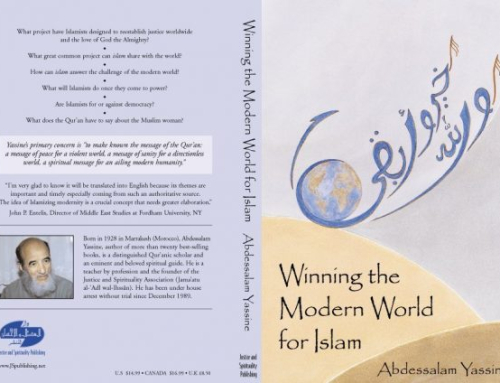Yassine Hicham
February 22, 2018
It is important that all Muslims, having observed the correctness of their practice, also attend to the correctness of their inner conduct. Countless Qur’anic verses and hadiths prove conclusively that this is also essential, though many of those who attend only to externals are heedless of this matter. Certainly everyone knows that the Qur’an and the sunna contain mention of the virtues of things such as abstinence, contentment, humility, sincerity, patience, gratitude, love for the Divine, acceptance of fate, trust, and so forth. Indeed, the Muslim is encouraged by these texts to acquire these qualities and to avoid their opposites, such as greed, pride, hypocrisy, rancor, lust, jealousy, and their ilk. Then, can there possibly remain any doubt as to the command or prohibition of these matters by the Shari<a? This is what is meant by the reformation of inner conduct. This is the primary goal of the spiritual education. It also happens to be an indisputable obligation.
In addition, experience has proved, and indeed it is the way the Almighty God has approved, that the single most important factor in the process of inner reformation is that of one’s companionship with those who have themselves been reformed. Wherever actual companionship is not feasible, abstract companionship, even in the form of one’s reading the biographies of the great Friends of God, can conceivably suffice in its place. This is the secret behind the frequent urgings of the Qur’an and hadiths toward the companionship of the good, and their warnings against the companionship of the wicked. For this reason, too, the stories of God’s special servants are repeated throughout the texts of the Qur’an and the Sunna.
Another fact borne out by experience is that one’s companionship of the pious, whether actual or abstract, can only be of benefit when accompanied by conviction and attachment. Otherwise one may spend a lifetime with the best of people and never benefit from their company. Moreover, in the same way that the companionship of refined people is beneficial, the companionship of corrupt people is detrimental.
In our own times, owing to the general lack of knowledge about Islam, and to the predominance of selfish desires, most people never even consider reforming their inner selves. And then, even if they do think of it and seek out the company of a spiritual guide, most of them are barred, owing to imbalances between what they know and what they practice, from making any real progress on the spiritual ascension. The majority of such people are either too severe or too lax in their approach to Ihsan. Those who are too severe often misconstrue the words, deeds, and states of the spiritual guides. Then, having decided for themselves that these things are contrary to the Sunna, the narrow-minded ones shun the spiritual guides and thus remain deprived of their blessings. In fact, it sometimes happens that, owing to their disrespectful and insulting behavior towards the masters, these narrow-minded people place their wellbeing in serious jeopardy.
On the other hand, those who are lax or weak in faith often become the followers of ignorant masters who subscribe to false doctrines. Then, without weighing the words, deeds, and states of these Sufi pretenders on the scales of the Shari<a, they accept everything they tell them. In this manner, when they decide to serve and accompany ignorant masters, they are actually doing harm to their religion.
Finally, I hope to remedy the notions of those whose faith is weak, and who suppose impostors to be masters in spite of their breach of the Shari<a. Thus, the difference between truth and falsehood may be rightly measured: in conformance with the standards of the Qur’an and the Sunna and in all this it is God from whom we seek assistance and guidance.















